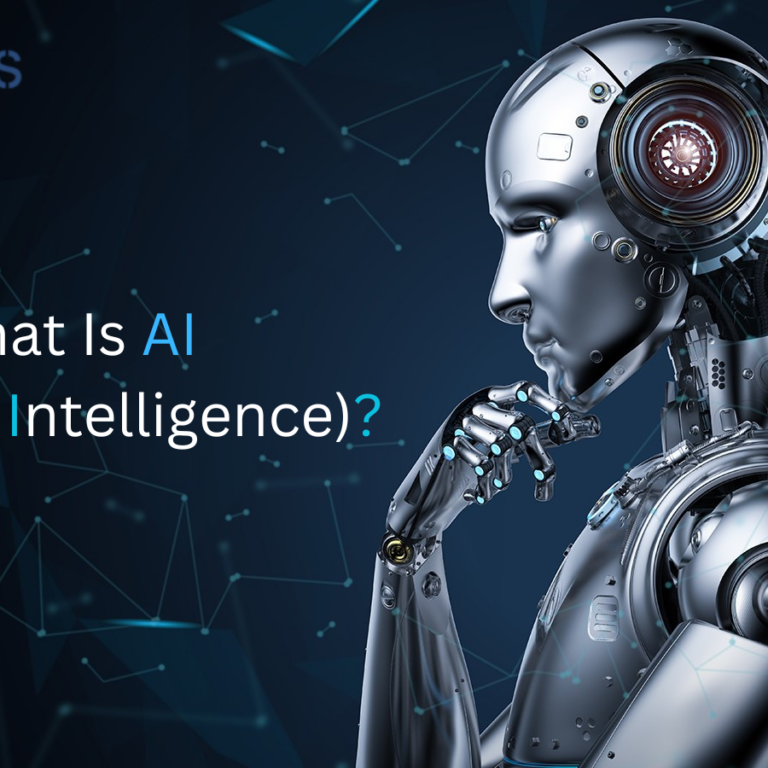The integration of Artificial Intelligence (AI) into Software as a Service (SaaS) platforms is reshaping the way businesses operate, enhancing efficiency, and transforming user experiences. AI technologies enable SaaS platforms to streamline operations, provide intelligent insights, and personalize interactions, creating a competitive edge in an increasingly digital world.

This article delves into the core AI functionalities in SaaS platforms, their applications across various sectors, and the advantages and challenges they bring to organizations.
Understanding AI in SaaS
Artificial Intelligence (AI) involves machines simulating human intelligence, enabling them to perform tasks that typically require human cognition, such as problem-solving, decision-making, and natural language understanding. When integrated into SaaS platforms, AI adds a layer of intelligence that automates processes, analyzes vast amounts of data, and enhances user interaction.
This convergence of AI and SaaS has revolutionized industries by delivering smarter, more adaptive software solutions. SaaS platforms powered by AI can reduce costs, improve scalability, and drive innovation while offering better experiences to end-users.
Key AI Functionalities in SaaS Platforms
AI functionalities in SaaS platforms can be categorized into several key areas, each contributing to the efficiency and effectiveness of modern software solutions.
- Customer Support Automation
AI-driven customer support tools like chatbots and virtual assistants are transforming the way businesses interact with their customers. These tools offer:
• 24/7 Availability: Unlike human agents, AI tools operate round the clock, ensuring customers receive immediate assistance whenever needed.
• Instant Responses: AI-powered bots are designed to handle frequently asked questions and resolve common issues instantly, reducing users’ wait times.
• Personalized Interactions: By analyzing past interactions and user data, AI customizes responses to cater to individual customer preferences, enhancing satisfaction.
For example, platforms like Zendesk and Freshdesk utilize AI to streamline customer support processes, enabling faster resolution of queries. - Predictive Analytics
Predictive analytics leverages AI to analyze historical data, uncover patterns, and forecast future trends. This functionality empowers businesses to make informed decisions by providing actionable insights. Key applications include:
• Customer Behavior Predictions: AI analyzes customer data to predict needs, allowing businesses to offer proactive solutions and maintain customer engagement.
• Risk Assessment: AI enables organizations to mitigate threats effectively by identifying potential risks based on patterns and anomalies.
• Sales Forecasting: AI helps businesses predict future sales trends precisely, aiding in inventory management and resource allocation.
Predictive analytics is especially beneficial for industries like eCommerce and finance, where accurate forecasting is critical to success. - Personalization
Personalization is a hallmark of modern SaaS platforms, driven by AI’s ability to analyze user behavior and preferences. Personalization improves user engagement and fosters brand loyalty. Examples of AI-powered personalization include:
• Tailored Content Recommendations: Platforms like Netflix and Spotify use AI algorithms to suggest content based on user preferences, boosting engagement.
• Dynamic User Interfaces: SaaS applications adapt interfaces to align with individual user preferences, creating a seamless experience.
• Customized Marketing Campaigns: AI-driven marketing tools help businesses create personalized email campaigns and ads, ensuring higher conversion rates.
Personalization ensures that every user feels catered to, enhancing satisfaction and retention rates. - Intelligent Automation
One of the most significant contributions of AI to SaaS platforms is intelligent automation. By automating repetitive tasks, AI allows teams to focus on more strategic initiatives. Key functionalities include:
• Workflow Automation: Routine processes like data entry, report generation, and scheduling are automated, saving time and resources.
• Resource Optimization: AI optimally allocates resources based on current and projected demands, ensuring efficiency.
• Performance Monitoring: Continuous monitoring by AI systems enables real-time adjustments to maintain peak performance levels.
For example, tools like Zapier and Automate.io leverage AI to provide automation and integration across different platforms. - Enhanced Data Insights
Data is the backbone of every business, and AI enhances the ability of SaaS platforms to process and derive insights from large datasets. The primary functionalities include:
• Real-Time Data Analysis: AI analyzes data in real-time, offering insights that help businesses make timely and informed decisions.
• Natural Language Processing (NLP): NLP capabilities allow AI to understand and analyze textual data, such as customer reviews or support tickets, helping businesses improve services.
• Automated Reporting: With AI, reports are generated automatically, reducing manual effort and ensuring accuracy.
Platforms like Tableau and Looker use AI to provide advanced data visualization and analysis, helping businesses turn data into actionable strategies.
Benefits of Integrating AI in SaaS Platforms
The integration of AI into SaaS platforms provides numerous benefits, empowering organizations to optimize their operations and deliver value to their customers:
- Increased Efficiency: Automation of routine tasks reduces manual workloads, allowing teams to concentrate on high-priority activities.
- Improved Decision-Making: AI-generated insights enable data-driven decisions, minimizing guesswork.
- Enhanced Customer Satisfaction: Personalized user experiences lead to higher engagement and loyalty.
- Cost Savings: AI-driven efficiencies reduce operational costs by streamlining workflows and minimizing errors.
- Scalability: AI solutions allow businesses to grow without increasing overhead, maintaining quality and performance at scale.
These benefits make AI a vital component for organizations looking to remain competitive in the digital landscape.
Challenges in Implementing AI in SaaS
Despite its advantages, integrating AI into SaaS platforms presents specific challenges organizations must address:
- Data Privacy Concerns
Handling sensitive customer data in compliance with privacy regulations like GDPR and CCPA is crucial when implementing AI in SaaS platforms. As AI processes large volumes of personal data to provide personalized experiences or predict behavior, businesses must ensure the highest levels of data security and user privacy. Failing to comply with privacy standards can lead to reputational damage and legal consequences. - Algorithmic Bias
AI models can inadvertently produce biased outcomes if the data used to train them is skewed or unrepresentative. This issue can affect decision-making processes and customer interactions. To address this, businesses need to continuously evaluate and update their AI models to ensure fairness, transparency, and accuracy. - Integration Complexity
Integrating AI into existing SaaS platforms can be complex, requiring substantial resources in terms of time, expertise, and financial investment. Organizations need to ensure their infrastructure is compatible with AI technologies and that their teams have the necessary skills to implement and maintain these systems effectively. - Change Management
AI adoption may meet resistance from employees who are concerned about the technology replacing their jobs. Overcoming this resistance requires effective change management strategies, including training programs that equip staff with the skills to work alongside AI tools.
Measuring the Effectiveness of AI Technologies in SaaS Solutions
Businesses can measure the effectiveness of AI technologies integrated into their SaaS platforms through various key performance indicators (KPIs). These include:
• Customer Satisfaction and Engagement: By tracking metrics such as customer retention, Net Promoter Scores (NPS), and engagement rates, companies can assess how well AI enhances the user experience.
• Operational Efficiency: Businesses can track the time saved by automating processes, the reduction in manual errors, and the overall impact on productivity.
• Return on Investment (ROI): Analyzing the cost savings and revenue growth resulting from AI adoption can help determine the financial impact of the technology.
• Accuracy and Precision: In predictive analytics and decision-making, the accuracy of AI predictions can be measured against actual outcomes to assess performance.
Privacy Concerns with AI in SaaS Platforms
AI-driven SaaS platforms, while powerful, must navigate complex privacy concerns. Given that AI often involves processing vast amounts of user data, businesses need to implement robust data protection measures to prevent breaches. Privacy concerns include:
• Data Security: AI systems should be equipped with encryption and security protocols to safeguard user data.
• User Consent: Transparent consent mechanisms should be in place to ensure users understand how their data will be used.
• Data Minimization: SaaS platforms should limit the amount of personal data they collect to what is necessary for providing the service.
Addressing these privacy concerns is vital for maintaining trust and compliance in the use of AI technologies.
Future of AI in SaaS
The future of AI in SaaS is bright, with ongoing advancements in technology promising even more transformative functionalities. Emerging trends include:
• Hyper-Personalization: AI will deliver even more precise and tailored experiences for users.
• Enhanced Cybersecurity: AI algorithms will improve threat detection and response times, ensuring data security.
• Voice and Visual Recognition: Advanced NLP and computer vision will enable more intuitive user interactions.
• AI-Powered Development: AI tools will assist developers in creating applications faster and with fewer errors.
As businesses continue to embrace digital transformation, AI will play a pivotal role in shaping the next generation of SaaS platforms.
Conclusion
AI functionalities in SaaS platforms are revolutionizing the way businesses operate by enhancing efficiency, personalizing user experiences, and enabling data-driven decision-making. From customer support automation and predictive analytics to intelligent automation and enhanced data insights, AI offers immense potential to streamline processes and improve outcomes.
While challenges such as data privacy concerns and integration complexities exist, the benefits of adopting AI in SaaS far outweigh the drawbacks. Companies that invest in AI-powered SaaS platforms stand to gain a competitive advantage, driving growth and innovation in an increasingly digital world.
By understanding and leveraging these AI functionalities, organizations can unlock new opportunities for success and redefine how they deliver value to their customers.






